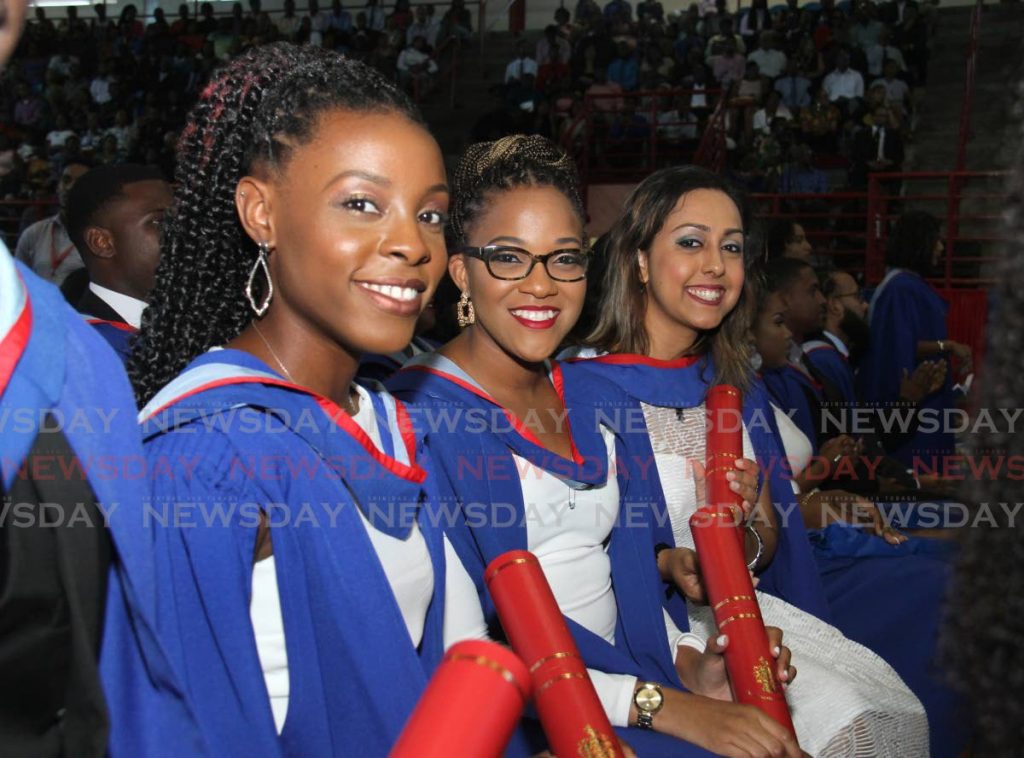University of the West Indies vice-chancellor uncertain about future of fees

UNIVERSITY of the West Indies (UWI) vice chancellor Sir Hilary Beckles said while students now typically pay 20 per cent of their cost of tuition, a report suggested this be raised to 40 per cent, but he hoped instead that regional governments and UWI could act to stabilise these fee levels.
He spoke on Monday at a virtual media briefing broadcast on UWI TV, Facing the UWI's Financial Future.
Earlier he suggested a model where students pay 15 per cent, international engagements pay 15 per cent, the private sector pays 20 per cent and the government pays 50 per cent.
While Beckles would like undergraduate students to pay 15 per cent, down from the current typical 20 per cent, he said regional governments are grappling with this issue. For example the Trinidad and Tobago Government has introduced a means tests while the Barbados Government has included an element of community service for beneficiaries of such education.
"We have a governance report which has said the students should pay up to 40 per cent. That is going to generate tremendous conversations in the region of the cost of their undergraduate programmes. I don't know how that can be done across the region, given that each country has a different policy.
"But I think the more we stabilise this for the next couple of years, the better I think we will be." Governments and UWI must discuss this, he said.
"But the idea of moving from students paying a maximum 20 per cent up to 40 per cent, I'm sure the public will say, 'Oo-ey! This is a huge jump.'
"What would that mean for enrolment? What would that mean for access?"
Beckles said UWI had transitioned well onto online courses during the pandemic. He said campus lectures would never return to 100 per cent face-to-face delivery post-covid, but rather this would be blended with online learning.
In addition to taking the usual school-leavers, he said, UWI will be catering for working adults to be able to study while working instead of taking a few years off work to exclusively study. Beckles also espoused the idea of lectures delivered online between different campuses.
He hoped UWI's Open Campus would grow to have 100,000 students in the first phase of expansion globally and then 200,000 in the second phase, compared 8,000 Open Campus students now enrolled plus 50,000 students attending UWI's five campuses.
Beckles saw the Open Campus as self-financing, with its surpluses to be ploughed back into UWI.
However he noted that UWI was owed US$51 million, an improvement from a previous debt of US$117 million. Beckles hoped UWI spending could be reduced by ten per cent, with revenues being raised by ten per cent. He lamented that the Caribbean had one of the lowest rates of university enrolment of any region.
Beckles said UWI would train several thousand civil servants in Guyana, in an initiative he called a major development and a major revenue stream. Beckles repeatedly made the point that a university must benefit the countries where it is located, noting it has a public function, unlike some private universities.
He reckoned that UWI's partner campuses in places as diverse as Cuba, China, and New York could generate 20-30 per cent of UWI's finances.


Comments
"University of the West Indies vice-chancellor uncertain about future of fees"